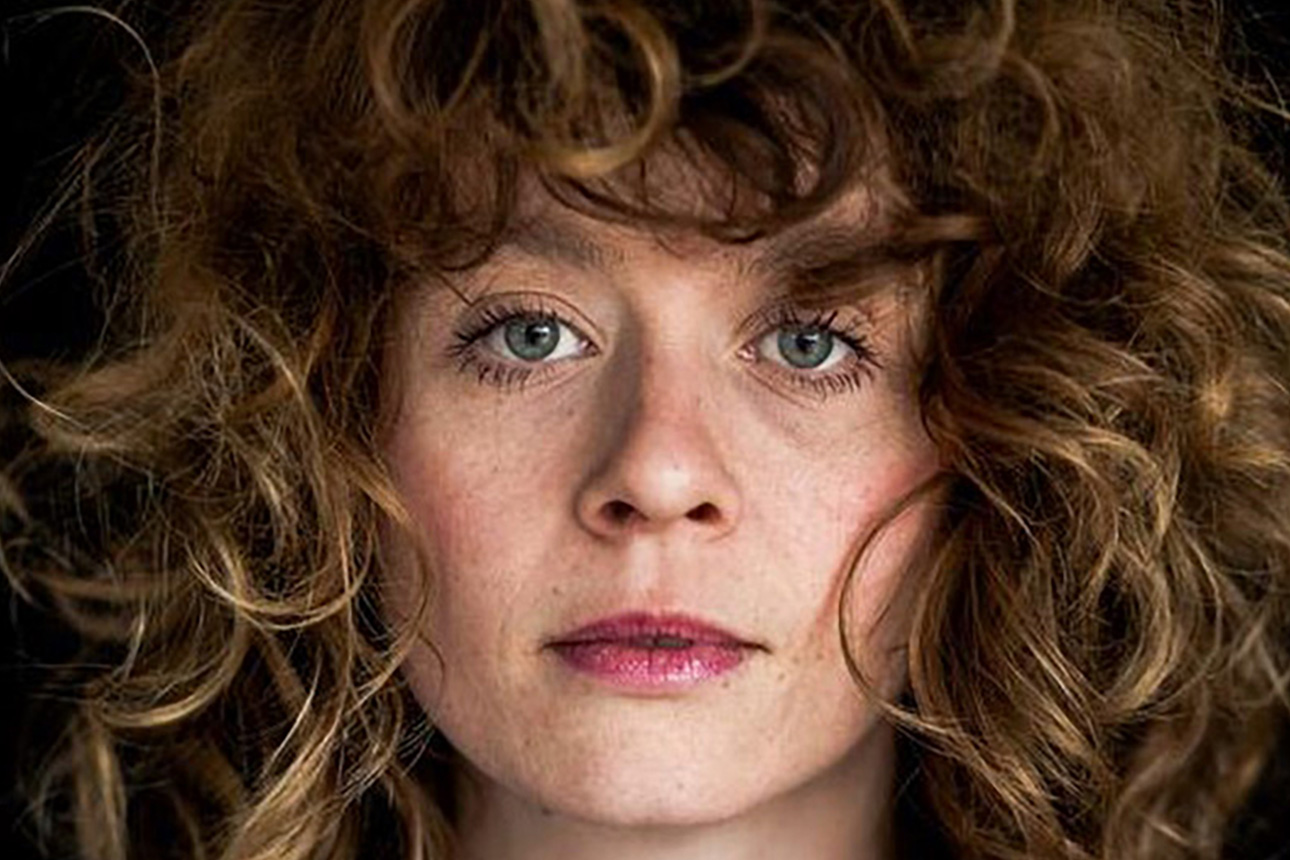Le merveilleux voyage d’Inès de l’Ouest: interview with Rébecca Déraspe

Do you remember “Deux ans de votre vie”, our production from the 2015-2016 season, or “Gamètes”, presented in the fall of 2019? This season, it’s our young audience production “Le merveilleux voyage d’Inès de l’Ouest”, another play written by the fantastic playwright Rébecca Déraspe, that we invite you to discover as family! Discover more about the adaptation of this show and the other works of a playwright we love dearly in this interview.
This fantastic artistic path you’re on, could we qualify it as a marvellous journey?
Rébecca Déraspe: Oh that’s pretty! Yes, I am very conscious of the privilege that I had coming out of the National Theatre School, I have never had to do something other than the job I wanted to do. I have a career path that makes me proud, but it is not my intention to rest on my laurels; I continue to work hard. Also, with each new play that I write, I always have a feeling that I won’t make it (laughs), it’s always the same process.
The project we are talking about today begins with the Quebec version of the show ‘Le merveilleux voyage de Réal de Montréal’, which in turn is loosely inspired by ‘The Wonderful Adventures of Nils’, a Swedish book by the writer Selma Lagerlöf, who is the first woman to have received the Nobel Prize in Literature, a book from the early 20th century. Can you talk to us a little about how you discovered this text and what brought you to write ‘Le merveilleux voyage de Réal de Montréal’?
Rébecca: It’s one of the first plays I wrote when I left the National Theatre School. The artistic director of the Théâtre de la Petite Marée in Bonaventure, in the Gaspé Peninsula said to me: ‘Read this, I think it could make a good play’. Parallel to this, Jasmine Dubé, a prolific young audience writer in Quebec, was interested in working with me and really loved the way Selma Lagerlöf wrote. So, the Théâtre de la Petite Marée and the Théâtre Bouche Décousue, got together to co-produce the play that I would have to write. When reading the book, I was charmed by the writer’s process, her desire to make children discover geography of their country in a playful way. I thought why not use that idea and help the kids who were going to come to the theatre discover Quebec. That happened again for this adaptation, ‘Le merveilleux voyage d’Inès de l’Ouest’. The idea is really to show, through imagination, the territory on which they live.
It’s not your only play for young audiences. What does this audience represent for you?
Rébecca: Personally, I treat it the same as an adult audience. It changes nothing to the way I write plays. The time considerations can be more important, because here in Quebec, the school buses wait for the students outside the theatre and so, the plays can’t be longer than an hour. Those are more preoccupying considerations, but other than that, for me, it’s the same as writing for an adult audience: we want to tell stories to people in a space that manage to make them think about the world they live in. That’s what is at the root of my work, and it remains the same whether it is for children, teens, or adults. I do ask myself what it is I want to say to different audiences but in terms of the rigor of the process, it’s the same.
Your style of writing is usually socially and politically engaged, full of punches and movement, made up of short sentences filled with action. Do you feel like you need to adapt your style of writing for young audiences?
Rébecca: I think I have the same desire in me, which is to give actors a kind of score that will be easy to speak, with a true theatrical orality, whether it’s theatre for young audiences or for adults. I strangely allow myself more playfulness in the language when it’s theatre for children. There can be more play on words because I believe that audience will respond better to that type of language, something I give myself less permission to do when writing plays for adults. When we can hear too much of the playwright’s writing in a play, it bothers me. I want to hear the characters, I don’t want to hear the playwright talking to me, but that’s a personal belief. I know that in some of my plays you can definitely hear me talking (laughs), but my deep desire is to make the characters speak.
The play was supposed to go on tour when the pandemic hit, two years ago. How did that go for you? We could believe that for a playwright, it could be an ideal situation, being stuck at home, with all the time in the world to write. Did it have that effect or not at all?
Rébecca: Not at all! When the pandemic started, I lost five productions in a matter of days, and writing, I think, is a moment that requires so much patience to finally meet the audience. The ‘pain’ of writing is tolerable because you know that you will reach an audience. When I lost all of those shows, it took a bit of time to grieve all the productions. I was not in a good place to write, the reverse actually, I was living the ‘couch potato’ version of my existence (laughs). But it came back, and now theatres are reopening, and I can feel something circulating again. What I did a lot during the pandemic was write Facebook statuses; they were written and worked on, poetic, with something specific to say. I was really trying to write mini plays. It allowed me to keep what felt most essential to my work process, which is encountering other people, so that helped me a lot.
In terms of the things you want to say in your plays, how do you choose your subjects?
Rébecca: It really depends on each project. I’ve been commissioned many times in my life, which means that a theatre company will come to me and say: ‘we want a play about x or y’. If not, when it’s a show that comes from me, like ‘Ceux qui se sont évaporés’, it’s a personal impulse, an obsession. In the case of that show, it’s about people who disappear, who evaporate, or voluntary disappearances. That subject became more and more of an obsession. There was a story in Quebec about a girl who disappeared and was then found in Saskatchewan. It really stayed with me. I started reading about it, I confronted my obsession through writing, trying to deepen what I was feeling, make sense of why it obsessed me, what about it is making me feel that way, and that became the play. So it really depends on the project, for example, I am writing a play called ‘Les Glaces’, which is about the questions of consent in a sexual relationship. It’s a project I started two years ago when #metoo was very present, I put it aside for a couple years, and I have picked up again this year. I started saying to myself ‘oh no, I don’t see things the same way anymore, I have to rewrite it because things have really evolved.’ I would say that the projects I initiate come from an obsession that I have that I am trying to get a grasp on.
Listen to the rest of the interview – in French – with Rébecca Déraspe in the fourth episode of our podcast series ‘En coulisses’. Le merveilleux voyage d’Inès de l’Ouest will be presented during two family performances, on March 26th, at Studio 16, before embarking on a elementary and middle school tour in British Columbia, Alberta and Saskatchewan! Info and tickets are available on the show’s website page.
